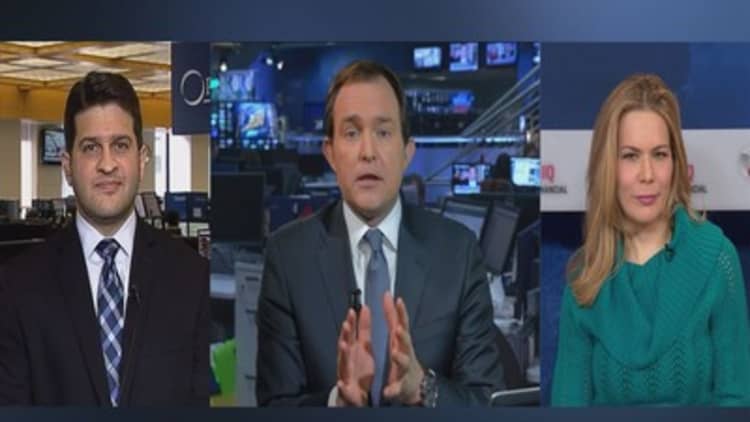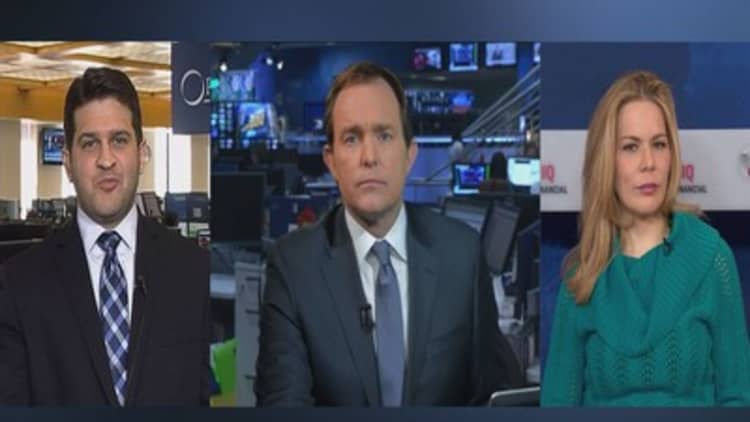


This earnings season could provide the answer to one of investors' biggest questions.
The recent market rout may have some wondering whether the U.S. is headed for an economic recession. But in a Monday research note, Jonathan Golub of RBC Capital Markets wrote that the continued decline in year-over-year earnings is more emblematic of an economic slowdown than a recession.
"The data shows that during past cycles, earnings do not simply drift toward zero during recessions; rather they decline quite dramatically. In 1997 and 1998, the Asian debt and Russian ruble crises led to earnings slowdowns," Golub wrote, but "neither metastasized into a full-blown recession."
Fourth-quarter earnings for the are expected to fall 6 percent compared to one year ago, according to FactSet. This would mark the third quarter in a row that earnings have dropped year over year, and extend the so-called earnings recession, marked by two consecutive quarters of declines.
Despite negative earnings estimates, Erin Gibbs of S&P Investment Advisory Services said investors shouldn't write off earnings growth for the year just yet.
"For 2016, we're looking at 5.5 percent growth, which is better than last year," Gibbs said Monday on CNBC's "Trading Nation." "We do see growth, but it is definitely slower than what we've typically seen."
Earnings aside, Gibbs sees several other indicators that she said should be encouraging signs for the U.S. economy, such as strong unemployment rates and housing activity. The MBA purchasing index hit its second-highest level since 2010, Gibbs noted, which indicates strength in the housing market. Given these positives, Gibbs said she expects GDP to see meager but positive gains this year.
Read More Goldman Sachs: Recession fear overblown, market to gain 11%
Ari Wald, head of technical analysis at Oppenheimer, pointed to another indicator of economic stability — the yield curve.
Looking at the difference between the 30-year Treasury bond and the , Wald noted that the spread remains much higher than in previous turbulent economic conditions.
In a healthy economy, short-term bonds yield lower returns than long-term bonds. This is because bondholders are compensated more the longer they are willing to hold the investment, as inflation is more likely to rear its head. When short-term yields exceed long-term yields, the inverted curve is often seen as a lack of confidence in the economy, and an indicator of an impending recession.
While Wald doesn't expect an economic recession, he warns that stocks may still have some room to fall. The S&P 500 has dropped more than 8 percent year to date, closing Monday at 1,877. Wald said the index may fall another 7 percent to 1,740.
"In those prior, nonrecessionary periods it has been consistent to see a 20 percent peak-to-trough decline," Wald said Monday on "Trading Nation. "I think that would mark a tremendous buying opportunity [in] what we still see as a secular bull market."
Want to be a part of the Trading Nation? If you'd like to call into our live Wednesday show, email your name, number and a question to TradingNation@cnbc.com





